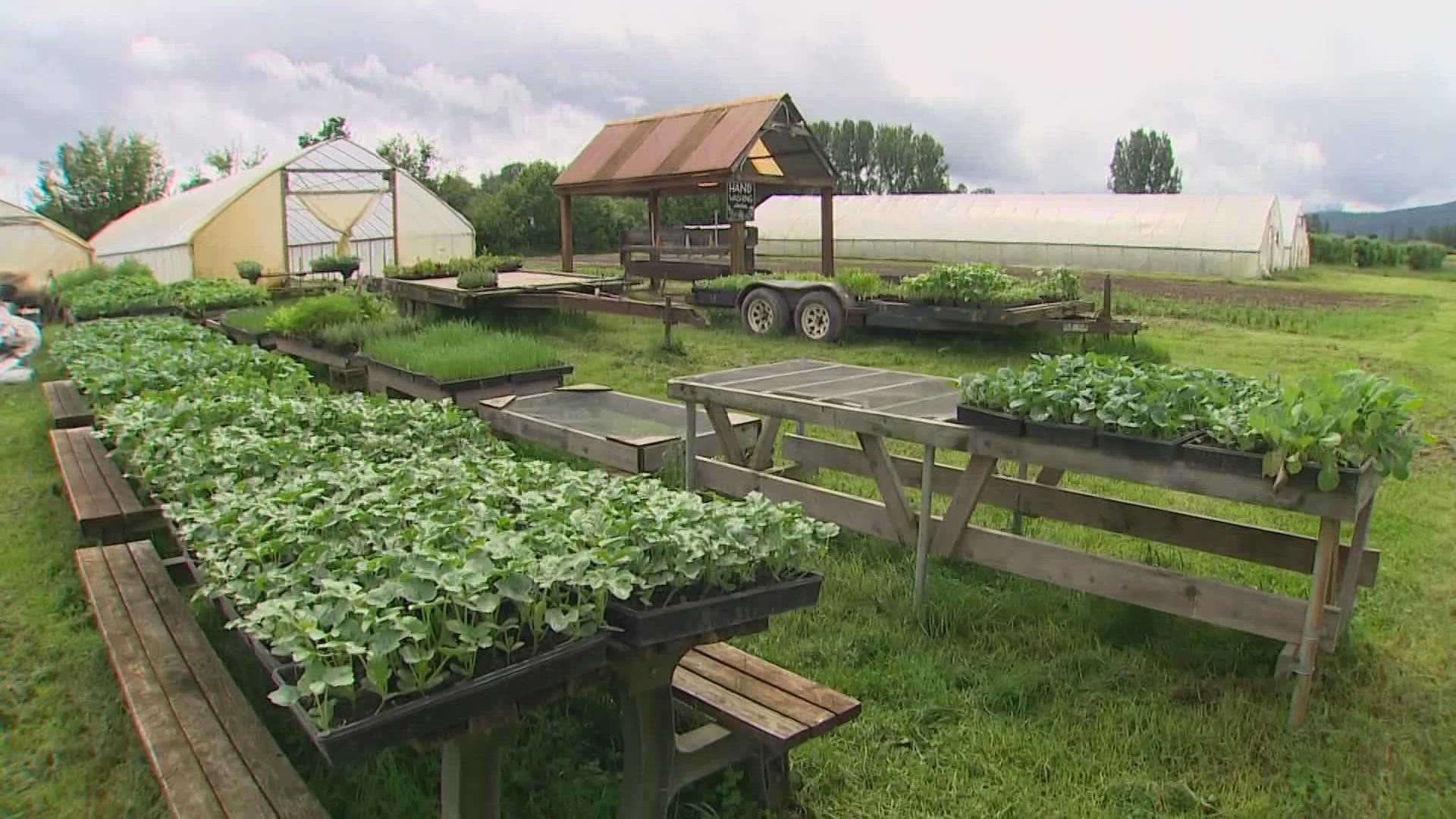CARNATION, Wash. — Farmers in the Snoqualmie Valley have faced a challenging start to the farming season, with cold and wet weather delaying the ability to prepare land for crops and get seeds into the ground. Some found themselves planting crops weeks later than they typically would, and a forecasted June flood caused many to gear up for another hurdle.
David Haakenson grew up farming and has decades of experience on Jubilee Farm in Carnation. He knows how to roll with the punches, but said the May and June rain has made it tough to keep on target.
"Wednesday night I knew it was coming, so -- they put lights on tractors now -- I went out about 1 a.m. and put out the squash," Haakenson said. "So it was kind of nice to put that out before the rain came and hopefully it doesn't get overly saturated."
Haakenson watched forecasts and flood gauges and was thankful to see original expectations for water levels decrease-- but said even the rain they did get makes an impact.
"It's not just like, oh, it's uncomfortable to work in the rain," Haakenson said. "The soil condition doesn't make itself available to planting, so machines don't work in it, and temperature impacts the conditioning of the soil. So if it's dry and warm, the soil will break apart and be more available for planting. If it's cold and wet, it clumps together."
Last year around this time, Haakenson was dealing with the effects of a heat wave.
"This is a different kind of struggle," Haakenson said. "You can't really control the weather, but I've always said I'd rather it be sunny than rainy because you can irrigate but you can't put a giant light over the farm."
The Snoqualmie Valley Preservation Alliance (SVPA) claims Haakenson isn't alone. Ahead of this rain event, it said many farmers chose to harvest early for fear of losing crops to floodwaters.
"Once that floodwater hits any fresh produce it can't be sold," SVPA Executive Director Lauren Silver said. "These floods we're seeing that are more severe, more frequent and happening at odd times of year-the floods that. What we really need to do is bring together community members, diverse stakeholders, experts in the community, to come up with creative and innovative solutions that help to address the issues that occur from flooding events like this."
Silver and Haakenson agree that lasting accommodations are needed. Silver encourages stakeholders to get involved in conversations about ways to moderate water flow throughout the years.
Western Washington residents can also support farmers by joining a Community Supported Agriculture membership program, purchasing "shares" of crops at the beginning of the season.

